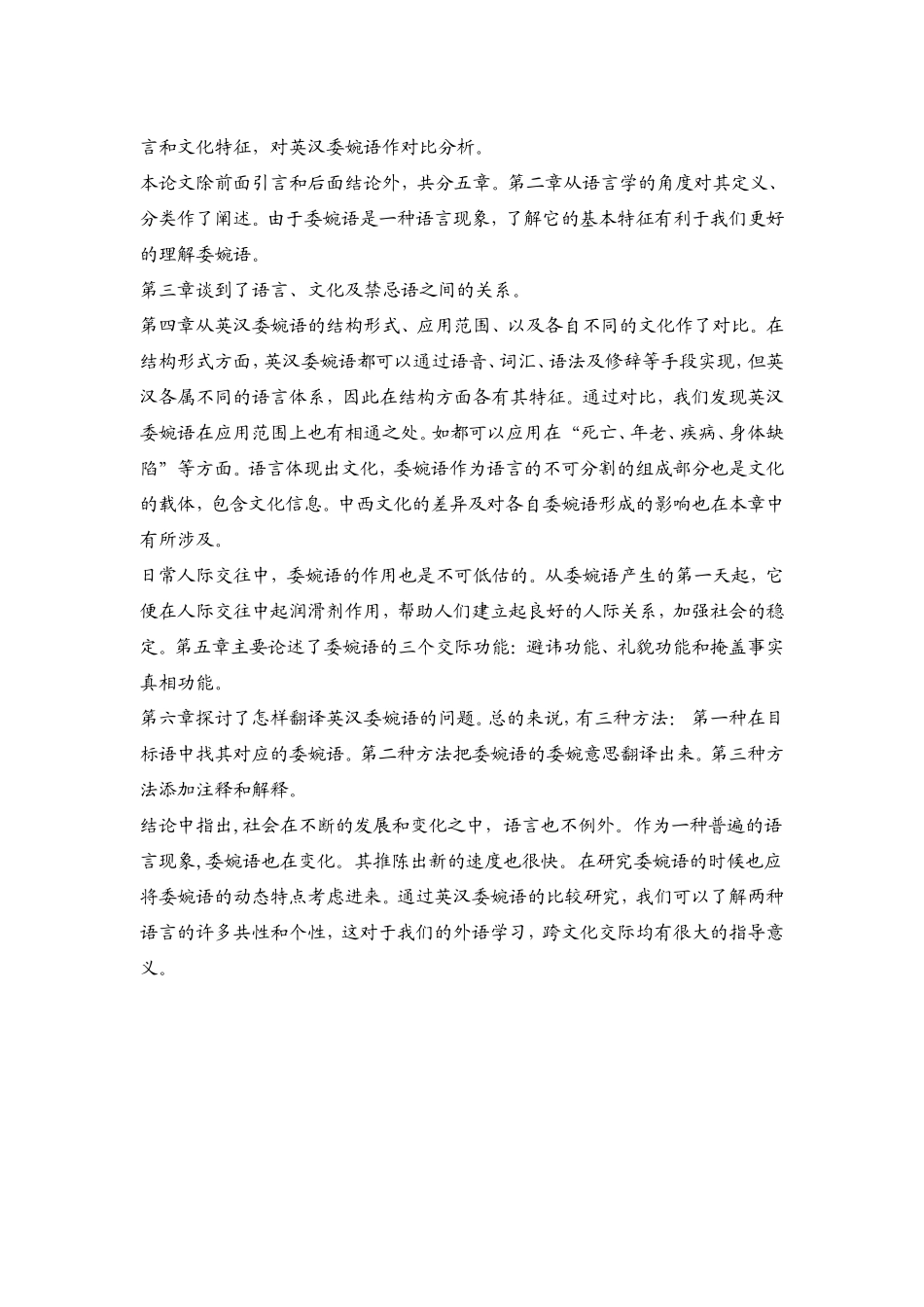A Comparative Study of English Euphemism and Chinese Euphemism ABSTRACTEuphemisms are mild, agreeable, or roundabout words used in place of coarse, painful, or offensive ones. The term comes from the Greek, eu meaning “well” or “sounding good” and pheme meaning “speech”. Euphemism literally means good or pleasant speech. As an indispensable and natural part of language, euphemism has been arousing wide interest. Many linguists and scholars have studied this linguistic phenomenon from the perspectives of rhetoric, semantics, pragmatics and sociolinguists. As a result, achievements in the study of euphemism have been conspicuous. Thus, on the basis of others’ researches, this thesis attempts to do a comprehensive analysis of English euphemisms and Chinese euphemisms by comparatively analyzing their linguistic and cultural characteristics.This thesis consists of five parts, with an introduction and a conclusion preceding and following them. As euphemism is a linguistic phenomenon, Chapter Two first states the definition of euphemism and the classification of euphemisms and then analyzes the linguistic features of euphemism, thus building up a better understanding of euphemism.Chapter Three illustrates the relationship among language, culture and taboo.Chapter Four compares English and Chinese euphemisms in formation, range of use, and then goes on to evaluate the importance of euphemism. Formation refers to phonetic device, lexical device, grammatical device and rhetorical device. The range of use covers such topics as death, old age, disease and physical shortcomings. Culture, embodied by the language system, is closely related to euphemism. Therefore, as an indispensable and natural part of language, euphemisms ...


